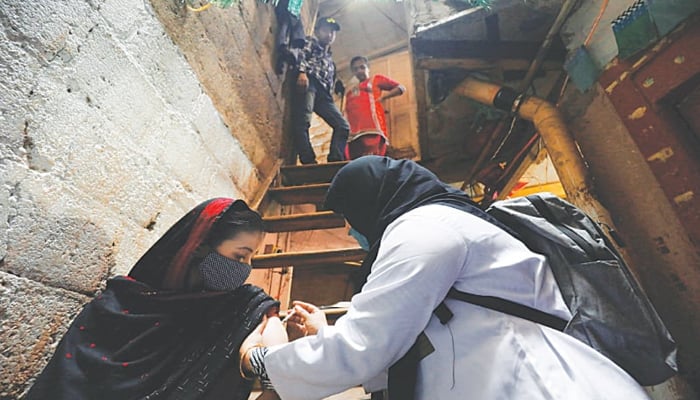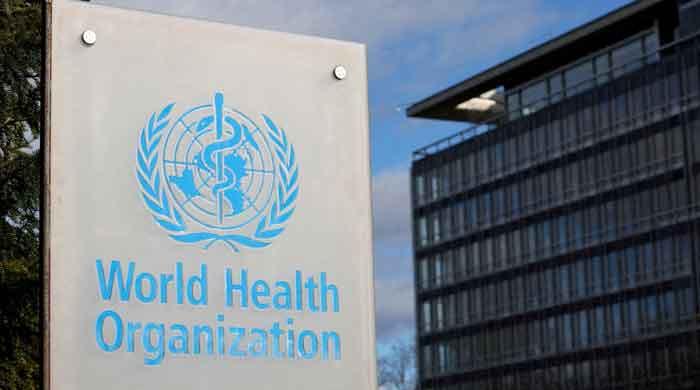Pakistan's COVID-19 positivity ratio jumps over 7% as Omicron spread continues
Country reports 3,567 new cases, overall infection toll moves past 1.315 million, NCOC data shows
January 14, 2022

- Pakistan's COVID-19 positivity ratio jumps to 7.36%, highest since August 31.
- Country reports 3,567 new coronavirus cases.
- As many as seven deaths reported across Pakistan.
ISLAMABAD: Pakistan's coronavirus positivity ratio jumped over 7% as the country reported 3,567 new cases — the highest since September 10, 2021 — in the last 24 hours, the National Command and Operation Centre's (NCOC) data showed Friday morning.
The NCOC said 48,449 tests were conducted across the country, and 3,567 infections emerged, taking the positivity ratio to 7.36%. The country last reported an infection rate of 6.64% on August 31, 2021.
With the new infections, the overall tally has risen to 1.315 million, while seven more deaths have taken the death toll to 28,999.
Amid rising coronavirus cases in the country after the emergence of the Omicron variant, a meeting of the education ministers' was called yesterday (Thursday) to decide the fate of schools, but was later postponed to next week.
Karachi witnesses major jump in infection rate
Karachi's coronavirus positivity ratio reached 28.80% in the last 24 hours, according to NCOC's data released this morning — slightly lower than 31%, which was recorded on Thursday when 1,940 people were testing positive for the infectious disease,
Chief Minister Sindh Murad Ali Shah said Friday the decision to impose a lockdown and close educational institutions will be taken in line with the NCOC recommendations.
CM Shah, speaking to journalists in Karachi, said coronavirus cases were spreading at a rapid pace, but the situation was under control as hospitalisations and patients in intensive care units (ICU) in the port city were less.
The Sindh CM highlighted that Karachi reported its highest number of COVID-19 cases a day earlier, but insisted that the pressure on hospitals is not increasing.
"Whatever strategy we adopt, it will be in consultation with NCOC," he reiterated.











